Need Help?
Announcements
7 January 2025
MDPI INSIGHTS: The CEO's Letter #19 - Reflecting on 2024, Society Journals, OA Germany

Welcome to the MDPI Insights: The CEO's Letter.
In these monthly letters, I will showcase two key aspects of our work at MDPI: our commitment to empowering researchers and our determination to facilitating open scientific exchange.
Opening Thoughts

Reflecting on 2024: Celebrating Our Progress and People
As we reflect on the year gone by, I’m proud and thankful for what we’ve accomplished together. This has been a year of growth, learning, and resilience, all of which have shaped MDPI’s journey. I would like to thank each of our employees for their dedication, hard work, and commitment to advancing open access (OA) publishing.
Our growth is evident: from about 5,900 colleagues at the end of 2023 to over 6,650 today, our global MDPI community continues to expand. We expanded our global operations with a new office in Seoul, South Korea, and celebrated a record-breaking year with 60 MDPI journals newly indexed in the Web of Science and 37 MDPI journals accepted into Scopus. As at 30 December, 2024, we publish 457 journals, of which 448 are peer-reviewed and 9 dedicated to academic conference outputs. Of these, 306 are indexed in Scopus, 298 in the Web of Science, and 90 in PubMed.
Looking for a new role in 2025? We have a variety of roles currently open!
Yet, growth never comes without its challenges. This year, we faced setbacks, including the removal of the Journal of Personalized Medicine from the Web of Science due to content relevance concerns. Our editorial and research integrity teams are actively addressing these issues, and we aim to reapply for indexation in December 2026. On another front, the decision by JUFO, The Finnish Publication Forum, to downgrade many MDPI journals presented a challenge. However, we are engaging with the Finnish research community and our editorial boards to provide scientific data supporting a reevaluation of MDPI journals in alignment with Finland’s national open access policies.
These examples remind us that challenges are part of our journey. What defines us is how we respond, by learning, adapting, and improving our practices and operations.
On the partnerships front, we achieved a landmark national open access agreement with over 100 German universities, effective 1 January 2025, bringing our total of Institutional Open Access Program (IOAP) partners to over 950. These achievements reflect not just our ambition but also the trust placed in MDPI by our collaborators worldwide.
Amidst growth and change, one constant remains: the people of MDPI. This year, I had the privilege of representing MDPI at important meetings and conferences from Beijing to Krakow, while visiting many of our offices, from Tokyo and Cluj to Manchester and Toronto. The highlight of my year has been meeting and connecting with so many of you.
“MDPI thrives because of community and collaboration”
When asked what makes MDPI a great place to work, my answer is simple: It’s the people. Our authors frequently praise the support and professionalism of our editorial staff. That same care extends inward, reflected in the friendships and collaborations we regularly nurture with our colleagues. MDPI thrives because of the community and collaboration that drives us forward.
As the African proverb states, “If you want to go fast, go alone. If you want to go far, go together.” I believe MDPI embodies both, being speedy in our daily operations and united in our purpose of promoting open access publishing.
Looking ahead to 2025, let us continue building a culture of care and support for one another, take pride in our work, and strive to improve all that we do. Thank you for making 2024 a special year, and I look forward to what we can achieve together in 2025.
PS: I look forward to sharing more about our people and the achievements of the past year in the 2024 Annual Report.
Impactful Research

685 MDPI Editors Named Highly Cited Researchers in 2024
I’m excited to celebrate the achievements of 685 Editorial Board Members (EBMs) from our journals, representing 39 countries and territories, who have been named Highly Cited Researchers for 2024 by Clarivate. This prestigious recognition highlights their scientific contributions, which transcend academic boundaries to drive progress in global knowledge, sustainability, security, and well-being.
Here, you’ll find the list of MDPI’s EBMs who have been recognized this year.
Clarivate’s annual Highly Cited Researcher™ list identifies the most influential scientists of the past decade – those whose work has made a profound and far-reaching impact across numerous scientific and social science disciplines. To be included on this list is no small feat. These researchers’ impactful papers rank among the top 1% by citations in one or more of the 21 fields analyzed within the “Essential Science Indicators,” positioning them as leaders in their domains.
As Clarivate notes, “Highly Cited Researchers have demonstrated significant and broad influence in their field(s) of research.” In 2024, a total of 6,886 Highly Cited Researcher designations were awarded to 6,636 individuals globally.
I extend my congratulations to all of MDPI’s EBMs who have achieved this milestone. Their dedication and excellence inspire us all and exemplify the high standards we uphold as a publisher. Congratulations to each of them for this incredible accomplishment and for their ongoing contributions to advancing knowledge in their fields.
Inside MDPI

How MDPI / Open Access Supports Societies
MDPI actively supports societies through the launch of new journals, the acquisition of established journals, and the transfer of society journals from other publishers. You can submit your proposal here.
Over the past 13 years, we have collaborated with over 190 learned societies and organizations. These partnerships range from affiliations with one or more of our journals to publishing journals on behalf of our partners.
Learn about how MDPI / Open Access Supports Societies.
In this section I highlight our Societies team, whose responsibilities include establishing new OA journals on behalf of societies and institutions, publishing an existing OA journal with MDPI or transitioning a subscription journal to an OA model, and establishing affiliations between societies and MDPI journals.
If you would like to learn more about these services, please see the Societies website.
The Societies team is led by Dr. Carla Aloè, Head of Societies and Acquisition, and her Deputy Manager, Dr. Clàudia Aunós. MDPI collaborates with a wide range of societies through various partnerships. For a complete list of collaborating societies and society journals, please visit the Societies website.

How long have you been at MDPI, and what was your first role?
I joined MDPI in September 2020 as an Associate Publisher and Scientific Officer, overseeing the Arts, Humanities, and Social Science journals. In July 2022, I took on the oversight of the Society and Acquisition team.
Do you think that perceptions of Open Access are generally accurate?
Far from it: there are in fact many misconceptions surrounding the way Open Access works and the benefits it has to offer. A common misconception is that OA journals are poor quality, which is entirely untrue. Many of our journals are included in major indexing databases, and all of them are endorsed by prominent associations and committees such as the Committee on Publication Ethics (COPE), the International Association of Scientific, Technical, and Medical Publishers (STM), and the Open Access Scholarly Publication Association (OASPA). We uphold a rigorous peer-review process, adhere to strict ethical standards, and rely on high-profile editorial boards.

How long have you been at MDPI, and what was your first role?
I’ve been at MDPI for almost seven years now. I started as an Assistant Editor but was quickly promoted to work with societies.
What is the most common question you get asked about the services that the Societies team provides?
For societies with a standard number of members (less than 500), the most common inquiry is about how much the publishing services we offer cost. One of the great things about our publishing services is that they are free of any burden cost to the society, regardless of the type of non-profit organization.
For bigger non-profit organizations, it is more about what benefits they can get for their members and ensuring that their journals are in good hands.
Either way, the goal is the same: to listen to the demands of the market, be flexible, and help our partners achieve healthy and positive development of their journals.
Read more:
Coming Together for Science

2024 MDPI Conference Summary
Throughout 2024, the MDPI Conference Team connected with scientific communities by organizing nine in-person events and 26 virtual conferences. In order to support the need for our growing events, we expanded this team to a total of 37 people across all offices, including 18 members in Asia-Pacific and 20 in the EU and North America.
The nine large-scale in-person conferences organized brought together leading minds across diverse disciplines, including our conferences on Viruses, Molecules, Polymers, Materials, Non-Coding RNA, Pharmaceuticals, and Sensors. These events strengthened synergies with the scientific community, actively promoting our journals and the latest research published within their respective fields. These achievements highlight our Conference Team’s dedication to creating meaningful and memorable events in the academic field.
2024 Event Highlights
Viruses 2024, the 5th edition of the conference series, hosted influential keynote speeches from Nobel Prize laureate Dr. Charles M. Rice and ‘Distinguished Senior Virologist’ Prof. Luis Enjuanes. The event attracted 240 attendees from around the globe. With 47 talks and nearly 130 poster presentations, the conference explored the latest developments in viral pathogenesis and immune responses across six engaging sessions.
Molecules 2024, the fourth edition of this conference series, highlighted the impact of emerging drug modalities on drug discovery. The event brought together over 100 attendees from 22 countries and featured more than 80 submissions organized into six sessions. The program included talks by 12 invited speakers from Europe, Asia and the United States. An impressive 97% of attendees rated the conference as ‘Excellent’ or ‘Good.’
Polymers 2024, attracted over 300 attendees from 22 countries and featured 259 accepted abstracts. Focusing on green polymer chemistry and the use of bioresources, the conference highlighted advancements in the synthesis of biobased and biodegradable polymers. Engaging lectures by three keynote speakers and 12 invited speakers, coupled with dynamic discussions, led 94% of attendees to rate the conference as ‘Excellent’ or ‘Good.’
A high-profile summit in Toronto was organized by the team, which expanded our global reach and showcased our capacity to deliver impactful events in our different offices. Sixteen EiC and seven EBMs joined our event, and with a 100% rate of Excellent/Good, over 90% of them said they are likely to attend our next edition.
The 1st International Conference on AI Sensors & The 10th International Symposium on Sensor Science successfully gathered about 400 participants onsite. Three hundred and fifty-five abstracts were accepted, with 772 authors from 28 countries. Across the four-day program, there were 296 talks delivered and 66 posters displayed.
The 2nd Sustainable Publishing Forum was successfully held in Beijing, China, with around 120 attendees from local publishers, editorial staff from local university presses, librarians, etc. The event is focused on promoting open science, maintaining research integrity and fulfilling social responsibility.
ICM 2024, the 5th International Conference on Materials, brought together scientists, researchers and industry leaders to explore advancements in materials characterization, processing and manufacturing. Topics ranged from nanotechnology and biomaterials to energy materials and AI-driven research. With 62 attendees from 26 different countries, the program featured 34 talks and 18 posters, fostering collaboration and innovation over 2.5 days.
The second edition of ncRNA 2024 welcomed 104 attendees from 30 countries, 71% of them being women. Two keynote speakers, Prof. Ling-Ling Chen and Prof. Mauro Giacca, shared insights drawn from over 10 years of experience. Prof. Giacca's groundbreaking work promises advances in curative therapies for heart failure, while Prof. Chen’s team continues to lead the development of the ncRNA field. High participant engagement generated valuable topics for future editions, and 96% of attendees rated the conference as ‘Excellent’ or ‘Good’.
Pharmaceuticals 2024, with its eight sessions, covered the newest technologies and the research areas of medicinal chemistry, natural products, organic synthesis, radiopharmaceuticals, pharmacology, toxicology, and biomolecular and glycosciences, among others. The conference featured three plenary and eight invited speakers, comprising esteemed scholars from eight different countries of Europe, and welcomed 64 participants from 28 different countries. Ninety-one percent of the attendees rated the conference as ‘Excellent’ or ‘Good’, highlighting the outstanding organzation of the event.
In 2024, we organized 26 virtual events with an average submission number of 158 abstracts per event, and an average registration number of 491 per event. Compared with the last edition, we saw a 42.2% growth of accepted abstract submissions.
The year 2024 marked a change in the strategy of our conference team, prioritizing the improvement of the communication and collaboration within our European and Asia-Pacific teams and creating stronger teamwork to elevate the quality and impact of MDPI events.
Scheduled Events in 2025
- Smart Sustainable Cities 2025: Pioneering Novel Frontiers for Green Urban Living: 5–7 Mar 2025, online.
- International Conference on Advanced Remote Sensing (ICARS 2025): 26–28 Mar 2025, Barcelona, Spain.
- Plants 2025: From Seeds to Food Security: 31 Mar–2 Apr 2025, Barcelona, Spain.
- Symmetry 2025 - The 5th International Conference on Symmetry: 16–19 May 2025, Hangzhou, China.
- The 2nd International Conference on AI Sensors and Transducers: 29 Jul–3 Aug 2025, Bangkok, Thailand.
- The 5th International Symposium on Frontiers in Molecular Science: 26–29 Aug 2025, Kyoto, Japan.
- The 11th World Sustainability Forum: Sustainable and Resilient Cities: 2–3 Oct 2025, Barcelona, Spain.
- The Cancers 2025 and Sensors 2025 websites will soon be made public.
Closing Thoughts

Over 100 German Universities Partner with MDPI in New National Agreement
I am pleased to share some exciting end-of-year news: MDPI has reached a major milestone by signing a publishing agreement with over 100 German universities and research institutions! Negotiated by ZB MED - Informationszentrum Lebenswissenschaften, the agreement came into effect on 1 January 2025 and will run until the end of 2026.
This new cooperation aims to make scientific Gold Open Access publishing more affordable and less administratively burdensome for researchers in Germany.
Learn more, here.

“Thank you to everyone who contributed to making this agreement a reality.”
Why is this important?

Germany is a global leader in academic research and publishing, ranking fifth in total MDPI publication volume.
This agreement reflects our growing influence and leadership in open access publishing.
Partnering with more than 100 institutions highlights MDPI’s reputation as a trusted publishing partner for the academic community.
As Peter Roth, MDPI Head of Publishing, noted:
“MDPI can look back on over a decade of successful partnerships with German research institutions. This agreement marks another milestone in our collaboration with the German scientific community.”
Adrian Stefan Zamfir, Institutional Partnership Manager for the DACH region, added:
“We are delighted that this agreement will give even more researchers in Germany access to our tried-and-tested and reliable publication platform”
Thank you to everyone who contributed to making this agreement a reality. This milestone reinforces MDPI as a trusted leader in advancing open access and supporting researchers worldwide.
Chief Executive Officer
MDPI AG
17 December 2024
Over 100 German Universities Partner with MDPI in New National Agreement

More than 100 German universities and research institutions have entered into a national agreement with MDPI. The publication agreement negotiated by ZB MED comes into effect on 1 January 2025 and is valid until the end of 2026. Joining the consortium is still possible until the beginning of 2025. We are delighted by the high level of interest this agreement has already garnered, reflecting the strong demand for accessible and cost-effective open access publishing solutions among German research institutions.
This new cooperation aims to make scientific gold open access publishing more affordable and less administratively burdensome for researchers in Germany. The agreement includes substantial discounts on article processing charges (APCs) for corresponding authors from participating institutions. It offers flexible payment options, including centralized invoicing or individual payment of fees by researchers or their institutions. Additionally, the agreement features a flat-fee model that enables institutions to precisely plan expenses and optimize their library budgets.
"MDPI can look back on over a decade of successful partnerships with German research institutions," says Peter Roth, MDPI Head of Publishing. "The new agreement marks another milestone in the long-standing co-operation between MDPI and the German scientific community. It emphasizes our commitment to developing up-to-date and inventive solutions for the diverse needs of scientific institutions to promote open research for the benefit of researchers."
Petra Labriga, Head of Strategic License Management at ZB MED, highlighted the agreement's significance: "As one of the world's leading Gold OA publishers, MDPI plays a central role in the German publishing landscape. We are particularly pleased that we were able to achieve considerable potential cost savings for scientific institutions and their authors at a national level through our negotiations."
The partnership reflects a common goal of advancing the idea of open access and supporting researchers in making their scientific excellence internationally visible.
"We would like to thank the ZB MED consortium team for their excellent collaboration," added Adrian Stefan Zamfir, MDPI Institutional Partnership Manager for the DACH region. "We are delighted that this agreement will give even more researchers in Germany access to our tried-and-tested and reliable publication platform."

Franziska Fischer (right), Commercial Director at ZB MED, an Peter Roth (left), Head of Publishing at MDPI, celebrate the signing of the new national open access agreement between MDPI and the ZB MED Consortium.

More Information
Contact
- ZB MED: Team Konsortiallizenzen ([email protected]) - Website
MDPI: Adrian Stefan Zamfir, Institutional Partnership Manager ([email protected])
About ZB MED
ZB MED - Information Centre for Life Sciences is an infrastructure and research centre for life science information and data. Its aim is to support and strengthen research for people and the environment: from medicine to biodiversity and environmental protection.
The work of ZB MED is orientated towards the strategic guidelines:
- Research + Networking: We conduct research together with the regionally, nationally, European and globally networked research community.
- Data science: We enable data analyses and generate new knowledge through research.
- Access to information: We provide sustainable access to information, literature and data as a central information infrastructure.
- Open + FAIR: We promote open and reproducible science in line with open science and FAIR principles.
- Knowledge and skills transfer: We actively impart knowledge, competences and skills.
More information at www.zbmed.de.
About MDPI
Headquartered in Basel, Switzerland, MDPI is one of the world's leading open access publishers with a current portfolio of more than 440 journals in all scientific disciplines. MDPI‘s goal is to advance open science worldwide through greater transparency, efficiency and collaboration. To date, more than 3.7 million researchers have published their results in MDPI journals. The editorial process is overseen by a large network of dedicated reviewers and editors and supported by more than 6500 MDPI employees. MDPI currently works with over 800 academic institutions and 180 scientific societies worldwide, which benefit from a wide range of MDPI services and products.
17 December 2024
Article Layout and Template Revised for Future Volumes
We are pleased to announce a series of updates to our template, aimed at improving the readability and overall aesthetics of our publications. These changes have been meticulously designed to enhance the user experience and ensure consistency across all our publications. The updated template will be available for download from the Instructions for Authors page.
The following updates will be applied to articles published in the 2025 volumes, starting on 24 December 2024:
- Main text: The line spacing has been increased to improve the readability of publications;
- Header and footer: The link to the journal website will be removed, as a hyperlink has been integrated into the journal logo. Additionally, the DOI link will be moved from the left-hand side to the right-hand side, and both the header and footer will be slightly raised to achieve a better balance;
- Left information bar: The information provided here has been rearranged for better organization; the CC-BY logo will be removed;
- Font size: The font size used for the abstract, keywords, and first-level headings will be increased.
Furthermore, MDPI journals will continue to use article numbers. This approach enables us to maintain a rapid and efficient production process by being able to define pagination as soon as a paper is accepted.
We hope that the new version of the template will provide users with a better experience and make the process more convenient.
Please contact [email protected] if you have any questions or suggestions.
6 December 2024
MDPI INSIGHTS: The CEO's Letter #18 - MDPI UK, Basel Job Fair, CETEF'24

Welcome to the MDPI Insights: The CEO's Letter.
In these monthly letters, I will showcase two key aspects of our work at MDPI: our commitment to empowering researchers and our determination to facilitating open scientific exchange.
Opening Thoughts

MDPI’s First UK Summit Held in Manchester
On 29 November, we hosted our first annual MDPI UK Summit, bringing together over 30 Chief Editors and Editorial Board Members (EBMs) to discuss MDPI’s mission, achievements, and collaborations in the UK.
Throughout the day we had talks from several members of MDPI, roundtable discussions on the peer-review process and upholding research integrity, and an engaging presentation from the Editor-in-Chief (EiC) of MDPI journal Mathematics, Francisco Chiclana, about his involvement with the Research Excellence Framework.

“This was a great first summit for MDPI UK and received excellent feedback”
In the following I highlight some of the sessions and the discussion topics covered in each session.
Session 1: Opening Speech and Introduction to MDPI

I shared an overview of MDPI’s mission, achievements, and commitment to quality. The Q&A touched on key topics such as perception and reputation management, expanding our arts and humanities portfolio, and funding challenges for open access (OA) in the UK.
A takeaway from this session was that in 2025, we will circulate a mini annual report to all editors, helping them understand MDPI’s mission and achievements beyond the context of their specific journals.
Session 2: MDPI and the Research Excellence Framework (REF)
Prof. Francisco Chiclana (EiC of Mathematics) highlighted MDPI’s role in REF, its purpose, and future directions.
Session 3: Editorial Process, Ethics, and Research Integrity
Dr. Giulia Stefenelli presented on the various editorial roles and responsibilities, quality metrics, and procedures for dealing with misconduct. The Q&A centred on AI in publishing, institutional roles in research integrity, and better data management practices.

Session 4: Institutional Open Access Program (IOAP)
Becky Castellon presented on IOAP benefits, including MDPI’s partnership with JISC, which includes more than 60 UK institutions, and highlighted the advantages of pure OA over transformative agreements.

Session 5: Round Table Discussion
Colleagues from our MDPI Manchester office Jaime Anderson and Dr. Michael O’Sullivan, along with colleagues from our Basel office Damaris Critchlow and Giulia Stefenelli, discussed innovations in peer review, challenges in maintaining scientific integrity, and future solutions.

Session 6: MDPI PR and the Voice of the Customer
I recapped our customer satisfaction drivers, including speed and editorial support. I also spoke about tackling misinformation about OA and MDPI in general, and outlined a way forward for us all to participate in advocating for open science.

This was a great first summit for MDPI UK and received excellent feedback from our EiCs, SEiCs, and EBMs. A BIG thank-you to our Manchester team (pictured below) and everyone else involved in organizing this event. Their hard work and dedication are much appreciated!

Impactful Research

MDPI and UK Publications
The UK is an important market for MDPI, ranking ninth in total submissions to MDPI and eighth in total MDPI publications, with over 72,200 publications to date. As at October 2024, there were more than 3,600 EBMs from the UK, 48% of whom have an H-index above 26. We also have 46 EiCs, and 63 SEiCs in the UK, some of whom joined us in Manchester for the UK Summit.
The UK is a strong advocate of OA publishing, with nearly three quarters of all articles in 2023 published on open access platforms. The country enjoys a large academic market, producing high-quality papers, and is home to some of the world’s top universities. Among MDPI’s 825 IOAP agreements, over 60 of these are in the UK, facilitated through our partnership with JISC.
“The UK is a strong advocate of OA publishing”
Visit to MDPI’s Manchester Office
Last week, I visited our Manchester office to see the expanding office space, connect with our staff, and present at the MDPI UK Summit held in Manchester.

Throughout the day, I met with various teams to better understand their work and discuss their future development plans in greater depth. Hearing from group leads about the progress we have made and the challenges we face offered many valuable insights. I also had the chance to connect personally with members of the content team. It’s great to see how this young and ambitious team is coming together.

I also took the opportunity to address the entire office about the role of MDPI UK within the wider company. During this session, I answered questions about growth and public relations initiatives. Giulia Stefenelli joined us to address questions about the role of AI in MDPI’s future.
Jaime Anderson (Office Manager) and the Manchester team have done a great job of growing the office since its establishment in 2019. Today, it has around 150 staff members across various departments, including English editing, editorial services, marketing and communications, and IOAP. The team is highly active in local marketing initiatives, such as author training sessions, scholar visits, and conferences.
For more information and updates on our Manchester office, follow MDPI UK on LinkedIn.
Inside MDPI

Basel Job Fair
In November, the HR team from our Basel office connected with over 300 young professionals at the Basel Job Fair 2024. This is my biased opinion, of course, but we had the best branded booth and merchandise, which drew a lot of attention from young talent wanting to learn about current and future job opportunities at MDPI.

Our HR team also helped review CVs on the spot, providing advice on how to improve them and making a positive impression on the future workforce in Basel.

This is a reminder that MDPI is not only focused on supporting young researchers but that we also recruit and develop young talent. We have seen MDPI HR do this really well throughout all of our offices, from Asia Pacific to Europe and North America.
HR plays an important role in our growing company, helping us meet our recruitment targets as well as providing support for local teams, guidance on management and best practices, a safe space for employees, and brand recognition for MDPI, among many other things.

“MDPI is not only focused on supporting young researchers: we also recruit and develop young talent”
This is a quick appreciation post to all HR staff working to support MDPI and our colleagues, cultivating talent and supporting careers at every stage. Thanks HR staff, keep up the great work!
Coming Together for Science

Pharmaceuticals 2024 – Recent Advances in Pharmaceutical Sciences Towards a Healthy Life (The 20th Anniversary)
I am pleased to share that the Pharmaceuticals 2024 – Recent Advances in Pharmaceutical Sciences Towards a Healthy Life took place from 27 to 29 November 2024 in Barcelona, Spain. It was chaired by Prof. Dr. Amelia Pilar Rauter from the Universidade de Lisboa, Portugal; Dr. Alfredo Berzal Herranz from Instituto de Parasitología y Biomedicina López-Neyra (IPBLN) CSIC, Spain; and Prof. Dr. Mary Jane Meegan from Trinity College Dublin, Ireland.
The conference took place in Casa Convalescència, a part of the Sant Pau Art Nouveau Site. The three-day event included three plenary sessions and eight invited speakers, from eight countries, and 29 selected talks. Of the presentations on site, there were 32 posters and 29 oral presentations.

The main goal of the ‘Pharmaceuticals 2024’ international conference was to cover the newest technologies and research areas including medicinal chemistry, natural products, organic synthesis, radiopharmaceuticals, pharmacology, toxicology, and biomolecular and glycosciences, in a meeting that brought together experts to present their latest findings on combatting infection, inflammation, pain, and neurodegeneration, to mention just a few of the topics that were discussed.

“The main goal of ‘Pharmaceuticals 2024’ was to cover the newest technologies and research areas”
20th Anniversary of Pharmaceuticals
The year 2024 marks the 20th anniversary of Pharmaceuticals – a journal dedicated to medicinal chemistry and related drug sciences, which is published monthly online by MDPI. To honour this milestone, we are reflecting on our past accomplishments and embarking on an exciting new chapter. This celebration is also one of the reasons why we organized the conference Pharmaceuticals 2024. With an Impact Factor of 4.3 and a CiteScore of 6.1, the journal is covered in Scopus, SCIE (Web of Science), PubMed, PMC, Embase, CAPlus/SciFinder, and other databases. Pharmaceuticals has published over 6,000 papers from more than 37,000 authors. More than 10,000 reviewers have reviewed for it at least once.
20th Anniversary of Pharmaceuticals: The Video
This video captures the experiences of the conference chairs, honorary guests and committee members of the conference.
Thank you to our partnering societies
A special thank-you is due to our partnering societies the Spanish Society Of Medicinal Chemistry (SEQT) and the Spanish Society For Biochemistry And Molecular Biology (SEBBM) for their support of the Pharmaceuticals 2024 conference. I am also pleased to report that we presented two awards, sponsored by the journal Pharmaceuticals, including the Best Presentation Award and the Best Oral Presentation Award, recognizing the contributions of our participants.
Closing Thoughts

Presenting at the 4th Central European Technology Forum
I visited Krakow, Poland in November to participate in the 4th Central European Technology Forum (CETEF’24), which took place on 18 and 19 November.
CETEF is an international conference that has been jointly organized since 2014 by the Polish Chamber of Commerce for Advanced Technologies (IZTECH) and the Polish Federation of Engineering Associations, with the support of the European Parliament and the European Commission, in cooperation with universities, research institutes and the high-tech industry. The 2024 event focused on presentation to advance the European science and technology agenda for 2025–2030.

MDPI participated as a key publishing sponsor. We had an exhibition booth and held two key presentations during the conference. On Monday, I presented MDPI’s vision, purpose, and achievements.
On Tuesday, Dr. Giulia Stefenelli shared how MDPI supports advancements in high technology and energy transition, highlighting our portfolio, services, tools and initiatives for promoting progress and interdisciplinary collaboration.

We received positive feedback from scientists and government representatives in attendance.
A big thank-you goes to our colleagues from the Krakow office for their support in organizing our participation and managing the MDPI booth.
Special thanks are owing to Weronika Gorka-Kumik, Igor Matic, Vincent Di, Agnieszka Rydz, Ksenia Shubenkova, Anna Krakowka and Klaudia Kasprowicz.
Below is a photo with the President of the Polish Chamber of Commerce conference (centre), along with MDPI colleagues Giulia Stefenelli, Weronika Gorka-Kumik, and Igor Matic (left to right).

“This year’s event focused on ideas and proposals to advance the European science and technology agenda for 2025–2030”
Chief Executive Officer
MDPI AG
4 December 2024
685 MDPI Editors Named Highly Cited Researchers in 2024

We extend our heartfelt congratulations to the 685 Editorial Board Members of our journals – from 39 different countries and territories – who have been recognized as Highly Cited Researchers for 2024 by Clarivate. This distinction highlights their exceptional scientific achievements and significant contributions, which transcend academic boundaries to advance global knowledge, sustainability, security, and well-being.
Clarivate's annual Highly Cited Researcher™ list identifies the most influential scientists of the past decade, whose work has had a profound and widespread impact across various scientific and social science disciplines. Their impactful papers rank among the top 1% by citations in one or more of the 21 fields analyzed within the "Essential Science Indicators," marking them as leaders in their respective domains.
"Highly Cited Researchers have demonstrated significant and broad influence in their field(s) of research," according to Clarivate. In 2024, a total of 6,886 Highly Cited Researcher designations were awarded to 6,636 individuals.
The following is a list of MDPI's Editorial Board Members named Highly Cited Researchers in 2024. We congratulate them for their achievement and their contributions to advancing knowledge in their respective fields.
|
Abate, Antonio |
Jiang, Lianzhou |
Song, Jibin |
5 November 2024
MDPI INSIGHTS: The CEO's Letter #17 - OA Week, Basel Open Day, Beijing Graphene Forum

Welcome to the MDPI Insights: The CEO's Letter.
In these monthly letters, I will showcase two key aspects of our work at MDPI: our commitment to empowering researchers and our determination to facilitating open scientific exchange.
Opening Thoughts

Open Access Week: Forging the Future of Open Access through Global Reach and Collaboration
From 21 to 27 October, we celebrated International Open Access Week (OAW), highlighting the importance of making research accessible to everyone. This campaign reinforced our commitment to advancing open access (OA) and showcased how we are helping research communities worldwide adopt OA as their standard.
“OA publishing is now a cornerstone of global research”
Throughout the week, we featured MDPI’s efforts to support quality open research through blog posts on topics such as how Research Integrity Promotes OA Practices, our Preprints.org platform, and supporting societies with different OA models. These initiatives capture our commitment to making research more inclusive and accessible to all.
OA publishing is now a cornerstone of global research, with more researchers choosing OA over traditional paywalled models, and embracing new, community-driven models.
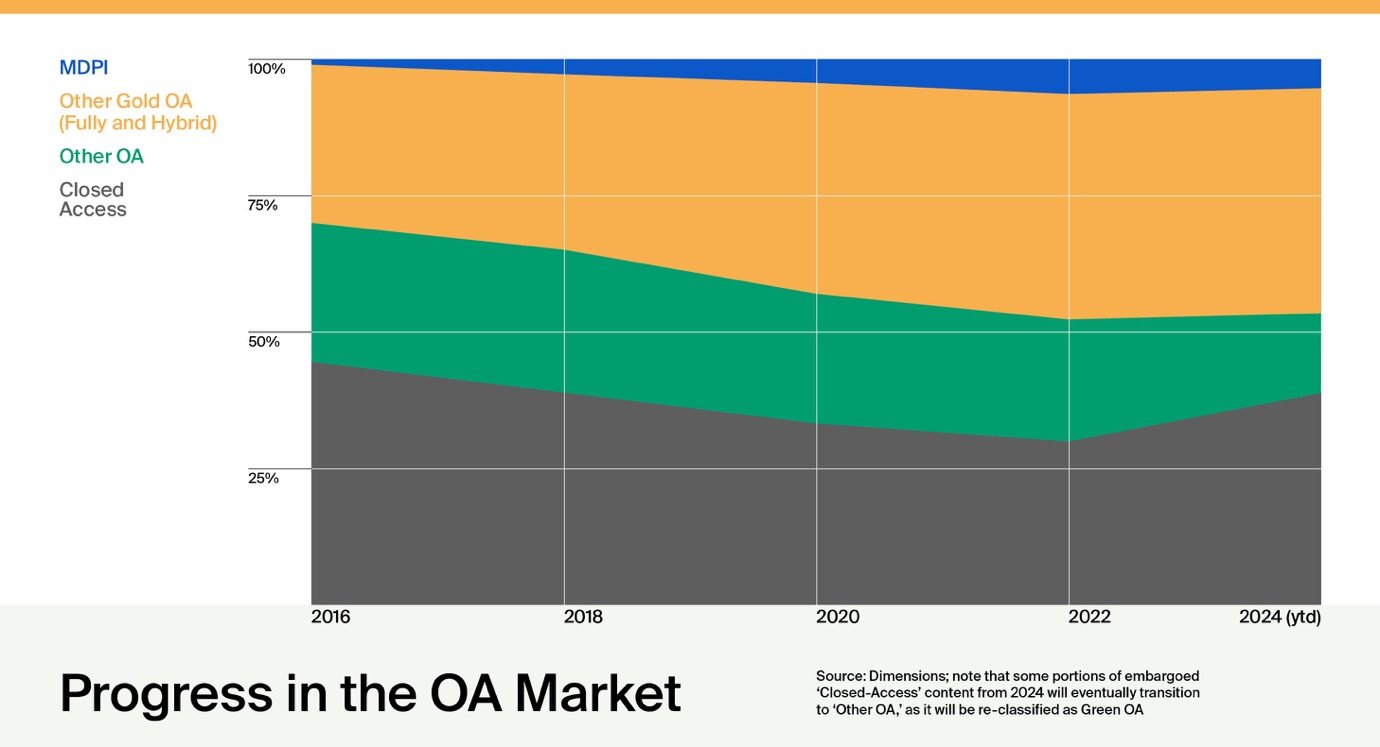
Benefits of Open Access and Open Research
- Accelerated Discoveries: OA speeds up scientific progress by allowing immediate access to findings, enabling researchers to build on each other’s work faster.
- Community-Led Innovation: Open research empowers communities to manage their own platforms, creating collaboration and shared knowledge.
- Increased Visibility: OA broadens the reach of your research, leading to greater recognition, collaboration, and impact.
- Cross-Disciplinary Connections: By removing financial and geographical barriers, OA unites diverse fields, sparking innovation across disciplines.

MDPI Singapore Celebrates Open Access Week
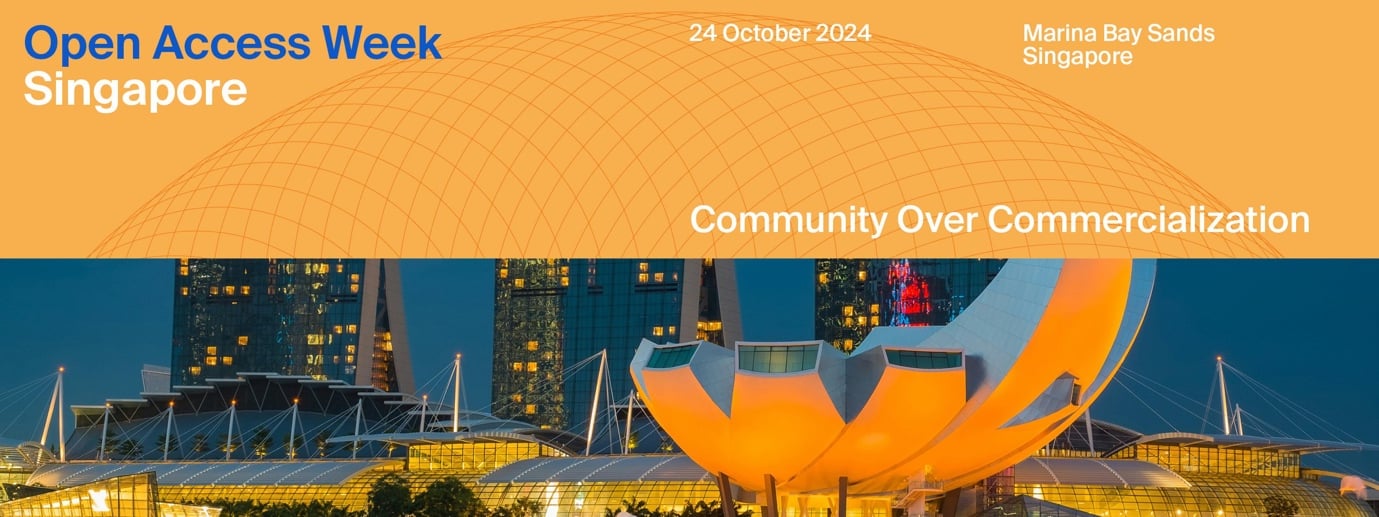
MDPI Singapore also hosted its first-ever OAW event at the Marina Bay Sands Convention Centre, bringing together academics, researchers, and students to discuss the future of open scholarship. Conversations focused on the potential of new publishing models, alternative funding strategies, and the importance of communicating research to wider audiences.
As OA evolves, MDPI remains a committed partner in advancing open science and creating a transparent, inclusive research environment. For a full recap of the week’s highlights and resources, visit our campaign page.

Impactful Research
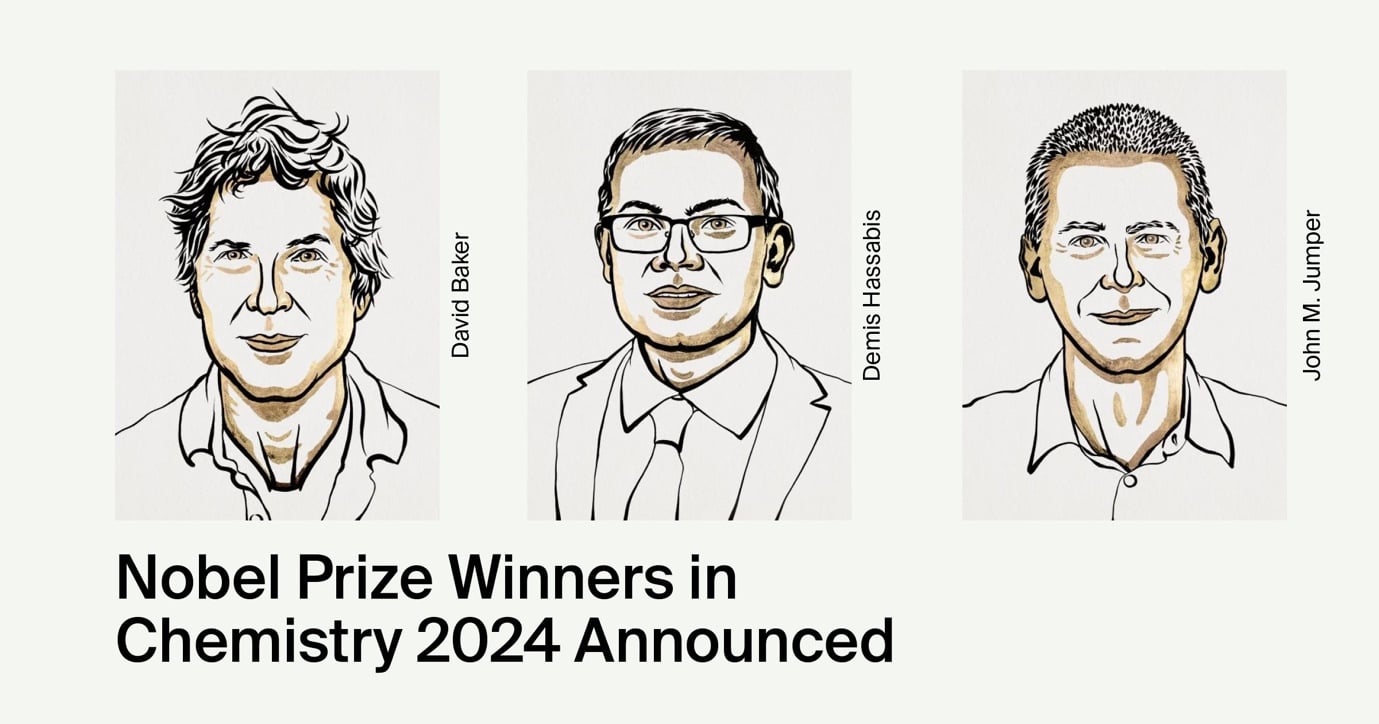
MDPI Connection to Nobel-Winning Protein Research
David Baker, an American biochemist, and Demis Hassabis and John M. Jumper, two scientists from Google DeepMind, have been awarded the 2024 Nobel Prize in Chemistry for their groundbreaking advancements in better understanding the structure of proteins, the molecular engines of life’s processes.
One half of the prize was awarded to Professor David Baker from the University of Washington for his development of revolutionary protein design software enabling the creation of novel proteins for vaccines, nanomaterials, and sensors. Prof. Baker co-authored a 2016 paper in MDPI’s Toxins journal on protein-based therapeutics.
Meanwhile, DeepMind’s Demis Hassabis and John M. Jumper received recognition for AlphaFold, the AI model that predicts protein structures from amino acid sequences, fulfilling a long-held scientific dream.
“We congratulate this year’s Nobel laureates for their groundbreaking contributions to the study of life”
Nobel Prize Laureates Entrust MDPI with Their Research
As at October 2024, 45 Nobel laureates had contributed to more than 115 articles across
35 MDPI journals. The privilege of hosting the research of such contributors, who significantly influence the open access movement, resonates deeply with our editorial teams.
We are proud to list the names of Pierre Agostini, Hiroshi Amano, Werner Arber, Aaron Ciechanover, Robert H. Grubbs, Oliver Hart, Gerard ‘t Hooft, Michael Houghton, Harald zur Hausen, Katalin Karikó, Jean-Marie Lehn, Gérard Mourou, Ferid Murad, Shuji Nakamura, William Nordhaus, Kostya S. Novoselov, Giorgio Parisi, Charles M. Rice, Alvin E. Roth, Donna Strickland, K. Barry Sharpless, George F. Smoot, Anne L’Huillier, Drew Weissman, Kurt Wüthrich, Ada Yonath, Tomas Lindahl, Thomas C. Südhof, Stanley B. Prusiner, Roger Kornberg, Robert F. Engle, Richard J. Roberts, Ōmura Satoshi, Kenneth J. Arrow, John B. Goodenough, Jennifer Doudna, Hamilton Othanel Smith, Eric R. Kandel, Carlo Rubbia, Bernard Feringa, Barry J. Marshall, Anthony J. Leggett, Andrew Victor Schally, and David Baker.
Notable MRNA Published in Cells
On 7 October 2024, the 2024 Nobel Prize in Physiology or Medicine was jointly awarded to Victor Ambros and Gary Ruvkun for the discovery of microRNA and its role in post-transcriptional gene regulation.
MicroRNAs are proving to be fundamentally important for how organisms develop and function. Some interesting papers about microRNA research are published in the MDPI journal Cells. I invite you browse through the notable papers related to microRNA research in Cells.
Inside MDPI
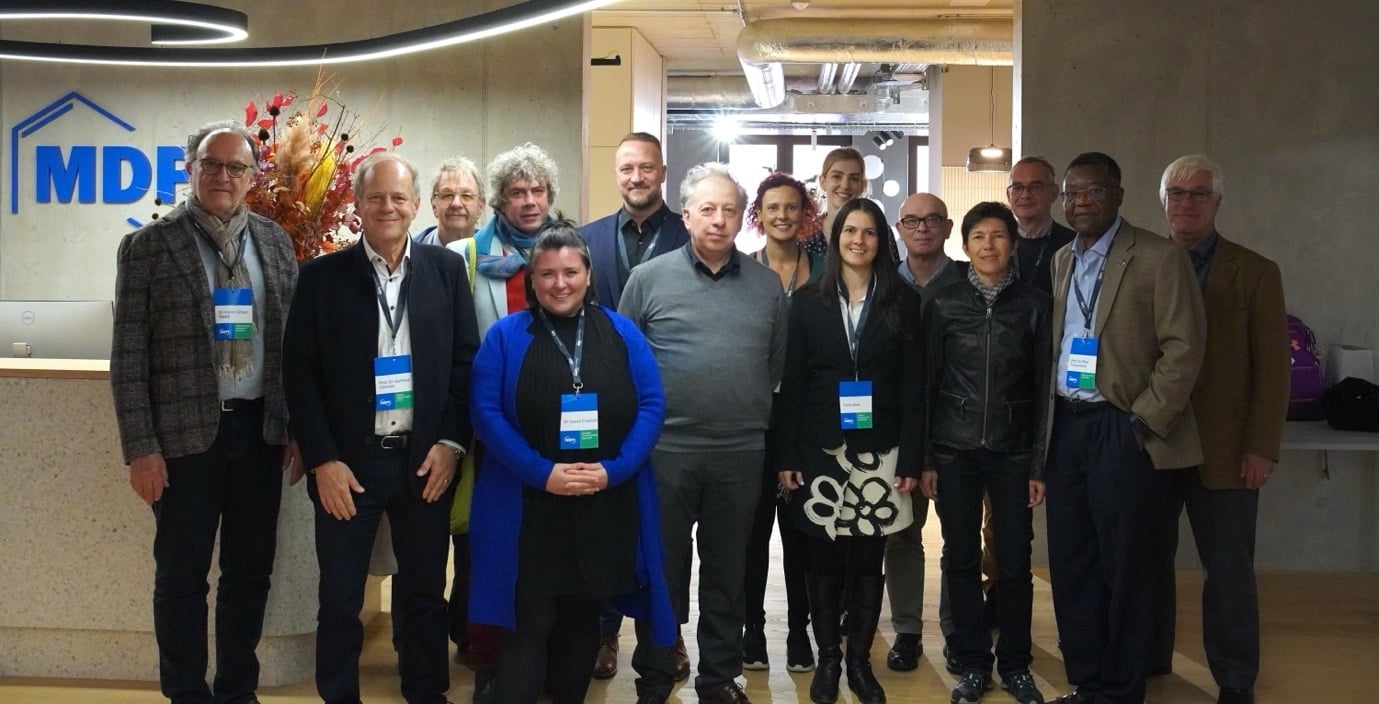
Basel Open Day
On 21 October, we held the Basel Open Day at our headquarters, welcoming a group of journal Editors-in-Chief (EiC) and Editorial Board Members (EBMs) for a full-day workshop. The event featured presentations and discussions on MDPI’s latest editorial updates, data integrity policies, society collaborations, and local market insights.
The following MDPI journals were represented during the visit: Physics, Journal of Personalized Medicine (JPM), Sci, Remote Sensing, Animals, Cells, Buildings, Histories, Sensors, and International Journal of Environmental Research and Public Health (IJERPH).
This was a great opportunity to showcase our new office space while gathering feedback from leading journal stakeholders. To get everyone on the same page, we took 60 minutes for round-table introductions, which helped set a collaborative tone and ground us in MDPI’s mission of disseminating open science.
“This was a great opportunity to gather feedback from leading journal stakeholders”
The general feedback from the day highlighted positive developments around our editorial and ethics policies, as well as areas for improvement, including flexibility regarding reviewer deadlines. There was a genuine appreciation and push for our ongoing efforts to share more about MDPI, including company updates and promoting high-quality research through our blog, announcements, and social media channels, which we have been growing and expanding.
Our Basel Open Day was a positive experience, bringing together key journal stakeholders and gathering insights to guide MDPI’s continued engagement with the academic community. We look forward to hosting future events of this kind and welcoming more scholars to our headquarters in Basel, Switzerland.
Coming Together for Science

ncRNA 2024 Conference in Basel
I am pleased to share that we held Non-coding RNA World 2024: Exploring Mechanisms, Designing Medicines (ICM 2024) in Basel, Switzerland this past 7–9 October.
The three-day event attracted just over 100 attendees, including two Chairs, 10 invited speakers and two keynotes from Prof. Mauro Giacca and Prof. Ling-Ling Chen. Of the presentations on site, there were 35 posters and 44 oral presentations.
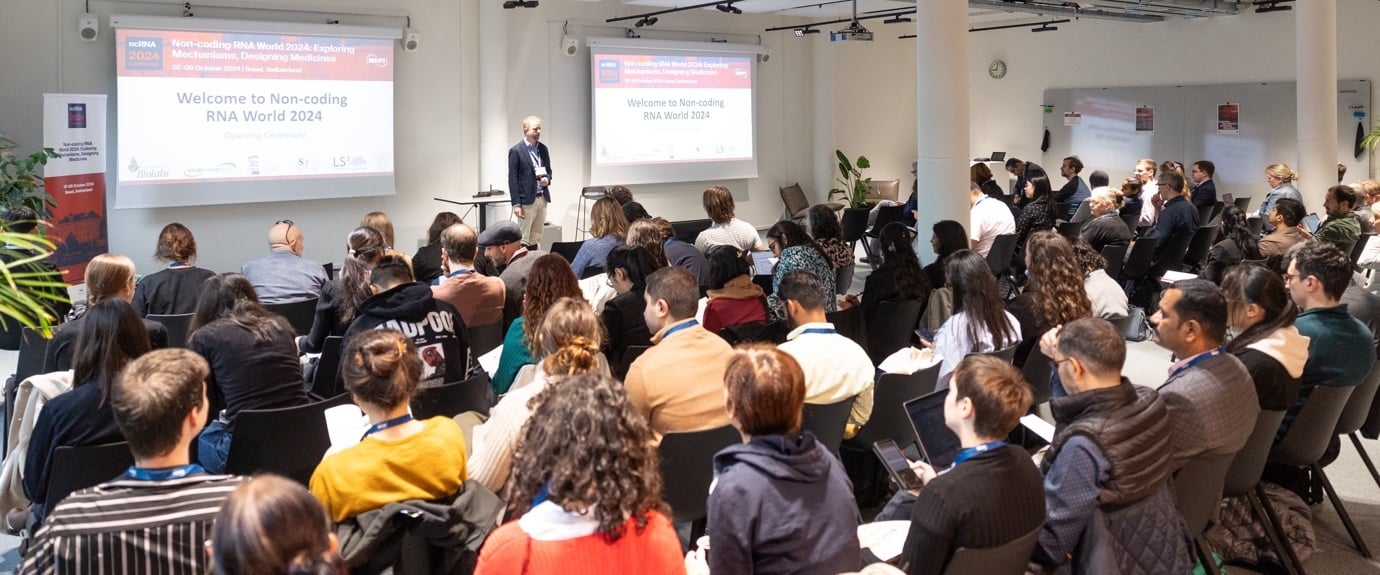
The overall feedback was positive, with people enjoying the intimate event and the unique activities offered, including a guided tour around Basel’s Old Town (a must-see for anyone visiting the city) and a memorable conference dinner.

It was cool to see the winners of the 2024 Nobel Prize in Physiology or Medicine announced during the conference days. This was exciting for attendees, as the winners discovered a new class of RNA molecules (miRNAs). As one invited speaker put it, “It's exciting to be among fellows when something that important for the field is announced.”
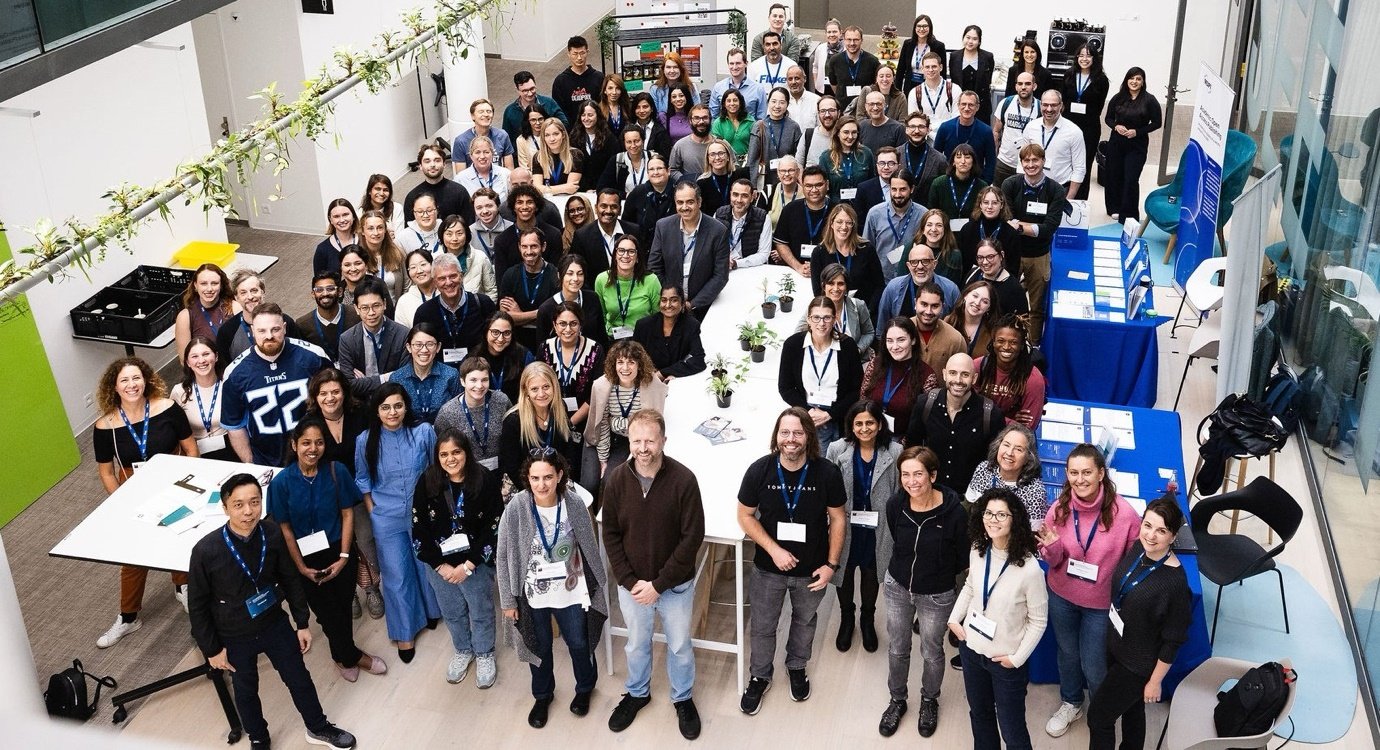
“It's exciting to be among fellows when something that important for the field is announced”
Every attendee receives a conference survey, and I’m always pleased to see a high percentage of ‘Very Satisfied’ responses when asked about ‘treatment from conference personnel’. Kudos to our conference team for meeting our attendees’ needs. These events are a great opportunity for us to reach new audiences, as 92% of the respondents had never been to an MDPI conference, so I am thrilled to see us connecting with a new demographic of your researchers in the RNA field.
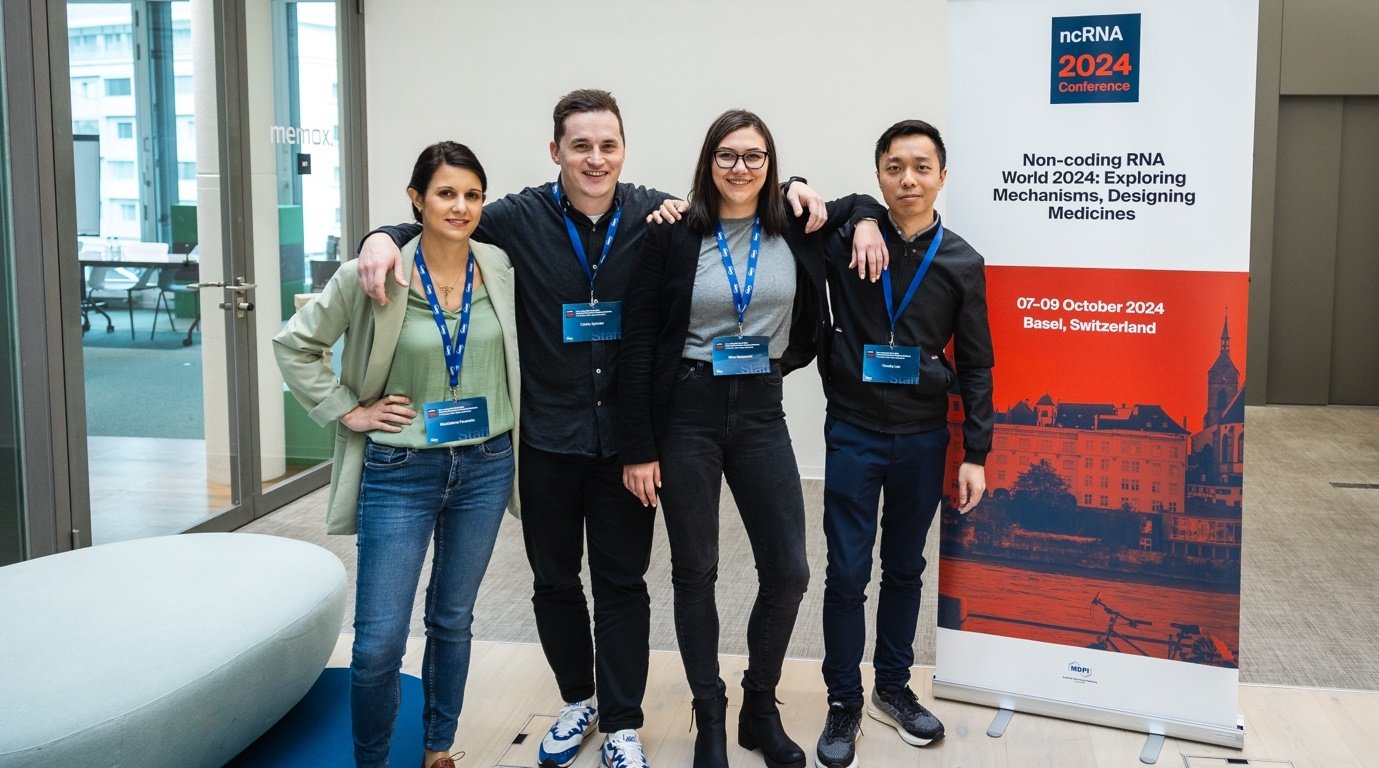
A special thank-you to our partnering societies The Epigenetics Society, The French Society of Genetics, LS2 / USGEB (Union of Swiss Societies for Experimental Biology), and The RNA Biology Group, as well as to our sponsors New England Biolabs and Arraystar for their support of the ncRNA 2024 conference. I am also pleased to report that we presented two awards, including the Best Presentation Award and two Best Poster Award, recognizing the contributions of our participants.
Upcoming In-Person Event
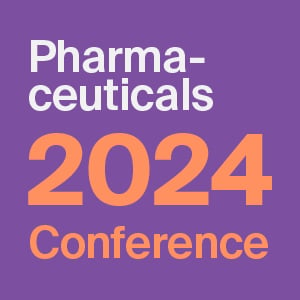
27–29 November 2024
Pharmaceuticals 2024 – Recent Advances in Pharmaceutical Sciences Towards a Healthy Life
Location: Barcelona, Spain
The discovery of new molecules, their properties, and actions to enhance human health and quality of life.
Find more upcoming MDPI events here.
Closing Thoughts

Beijing Graphene Forum 2024
I am pleased to share that we had a successful time at the Beijing Graphene Forum 2024, which drew around 1,000 attendees, including Konstantin Novoselov (2015 Nobel Prize in Physics) and other high-profile scholars in materials science and chemistry. It was a great opportunity to present MDPI on the big stage, with university presidents from institutions such as Peking University also in attendance.
I had the honour of awarding Prof. Zhongfan Liu, Chairman of the Chemical Science Committee, with a medal and presenting certificates to the members of the Chemical Science Committee; this is an important initiative to help expand MDPI’s journals and influence in China. These are highly respected scholars, and we enjoyed connecting with them over lunch as well.
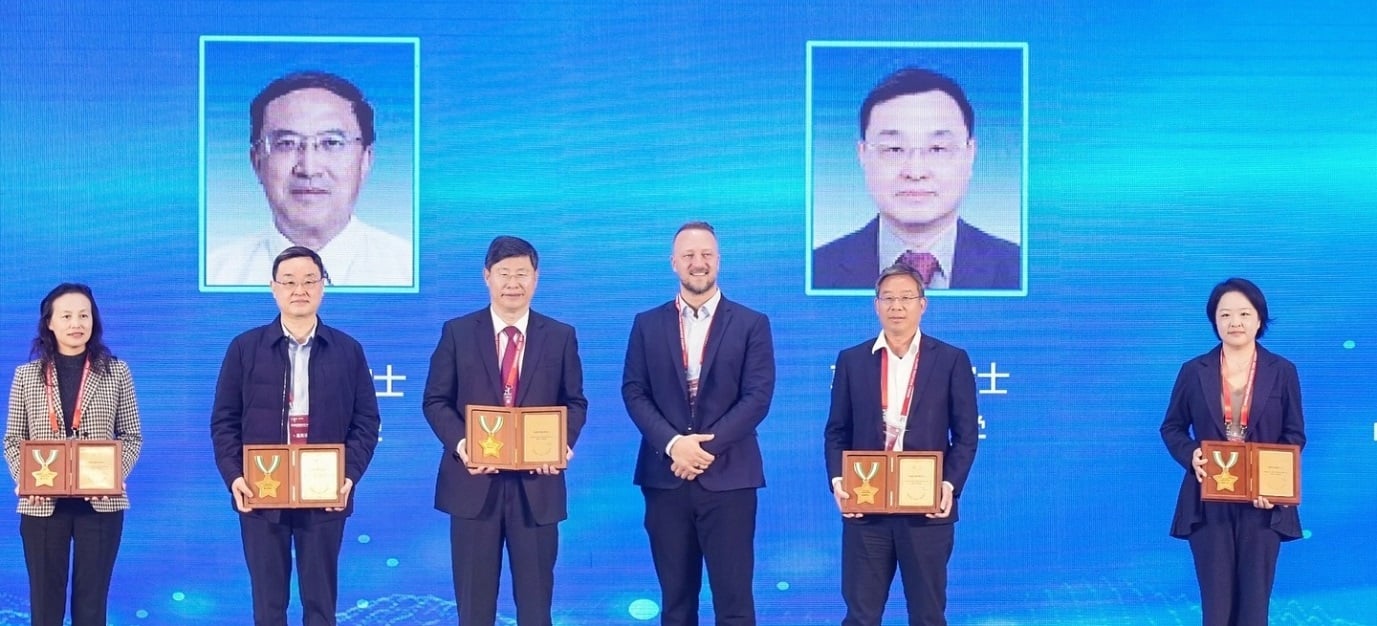
“This is an important initiative to help expand MDPI’s journals and influence in China”
I also had the chance to speak about MDPI and open access, giving a five-minute speech during the opening ceremony and a 20-minute presentation at the close. MDPI hosted a sub-forum where both academic scholars and MDPI members shared insights, and we engaged with attendees at our MDPI booth.
This was a great opportunity to spotlight MDPI as the main publishing partner for the event, and I was proud to represent us on stage. We also met with scholars to discuss topics such as their publishing needs and institutional policies, open access, impact journals, and IOAP.
Chief Executive Officer
MDPI AG
16 October 2024
MDPI's Newly Launched Journals in September 2024
Five new journals covering a diverse range of subjects launched their inaugural issue in September 2024. Like other journals in MDPI’s portfolio, these journals are dedicated to sharing the latest research through open access, reflecting our commitment to making knowledge accessible to all.
We extend our sincere gratitude to the Editorial Board Members for their dedication to the launch and development of our new journals. Each journal will ensure its high-quality output via excellent editorial and rigorous peer-review processes so that the published articles achieve significant impact and broad visibility.
We invite you to explore and learn more about these new journals below.
| Journal | Founding Editor-in-Chief | Journal Topics (Selected) |
| Prof. Dr. Nejat Düzgüneş, University of the Pacific, USA | Editorial | view inaugural issue | biological therapy and stem-cell therapy; drug therapy; chemotherapy; radiation and other nonsurgical therapeutic strategies | view journal scope | submit an article | |
| Prof. Dr. Magda Tsolaki, Greek Federation of Alzheimer’s Disease, Greece; Aristotle University of Thessaloniki, Greece | Editorial | view inaugural issue | surgical/procedural complications; complications; perioperative adverse events; postoperative adverse events | view journal scope | submit an article | |
| Prof. Dr. Steven R. Fassnacht, Colorado State University, USA; Cooperative Institute for Research in the Atmosphere, USA | Editorial | view inaugural issue | ice as a mineral; atmospheric ice; sea ice; freshwater ice; ice sheets; ice caps and ice shelves | view journal scope | submit an article | |
| Dr. Francisco Epelde, Hospital Universitari Parc Tauli, Spain; University Autonoma of Barcelona, Spain | Editorial | view inaugural issue | hospital management; hospital facilities; hospital services; hospital risk management; health law | view journal scope | submit an article | |
| Prof. Dr. Nicola Ferri, University of Padova, Italy | Editorial | view inaugural issue | lipids in cells and whole organisms; lipid structure and function; lipid products and processes; dietary lipids and nutrition | view journal scope | submit an article |
We wish to thank everyone who has supported the development of open access publishing. You are welcome to send an application here or contact the New Journal Committee ([email protected]) if you would like to create more new journals.
4 October 2024
MDPI INSIGHTS: The CEO's Letter #16 - UNGA79 Science Summit, OASPA, Peer Review Week

Welcome to the MDPI Insights: The CEO's Letter.
In these monthly letters, I will showcase two key aspects of our work at MDPI: our commitment to empowering researchers and our determination to facilitating open scientific exchange.
Opening Thoughts

MDPI Joins the Science Summit at UNGA79 (23–27 September 2024, New York)
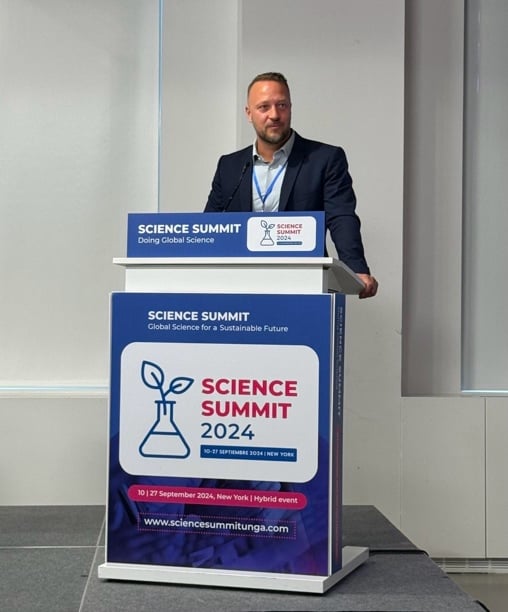
On Friday 27 September, I had the privilege of giving the opening talk at the “Youth at the Science Summit” panel during the Science Summit conference, held in New York at the 79th session of the United Nations General Assembly (UNGA). Together, we discussed the future of science, publishing, innovation, and sustainable development.
It was a great opportunity to learn from our young leaders, whose voices must be included in the conversation as science shapes the future of artificial intelligence, climate mitigation, healthcare, technology, and more. This was also a powerful reminder of how essential global collaboration is in solving the major challenges we face. I left inspired by the dedication of these young researchers to making the world a better place!
Today’s youth are not just the leaders of tomorrow – they are already leading the change today.
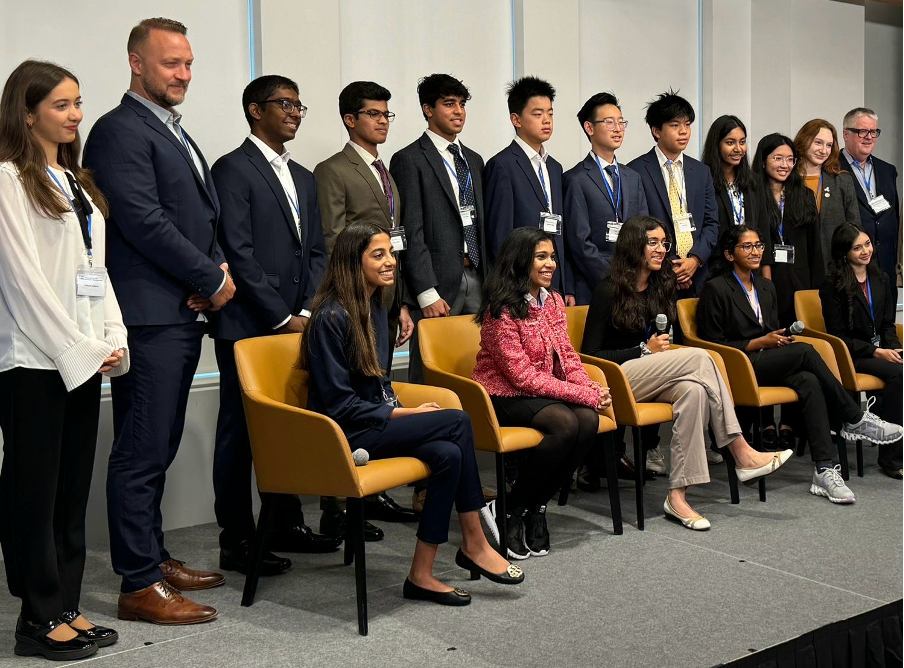
Stefan Tochev (second from left) at the UNGA Science Summit 2024: “A great opportunity to learn from our young leaders.”
MDPI Supports the Future Generation of Scientists
This aligns with MDPI’s mission to support the next generation of scientists and early-career researchers by recognizing their achievements through our various MDPI awards, including the Young Investigator Awards, Best PhD Thesis Awards, Travel Awards, and more.
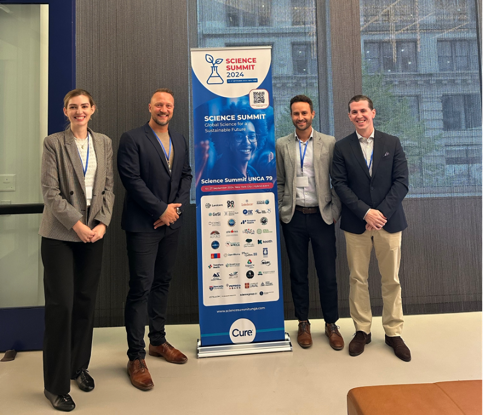
Our presence at this global event showed our commitment to advancing Open Science as a key driver for sustainable development. As a leading Open Access (OA) publisher, MDPI’s role at the summit was to emphasize the critical importance of democratizing scientific knowledge, making it accessible to all, and promoting global collaboration.
Through OA publishing, we aim to address pressing global challenges such as climate change, public health, and inequality, in line with the United Nations Sustainable Development Goals (SDGs).
“We aim to address pressing global challenges”
MDPI and the SDGs
In 2020, the SDG Publishers Compact was launched to accelerate implementation of the SDGs by promoting content that informs, develops, and inspires action. MDPI joined this initiative in 2021 and subsequently launched the MDPI SDG Hub in 2022, offering free access to recent research within the scope of each of the 17 SDGs.
During the summit, we highlighted the connection between Open Science and the SDG Publishers Compact, supporting the core objective to “Leave No One Behind” (LNOB). The transformative promise of the SDGs relies heavily on the Open Access model, which serves as a fundamental enabler of Open Science. We advocate for the wider adoption of Open Science practices in order to achieve the SDGs by 2030.
Impactful Research
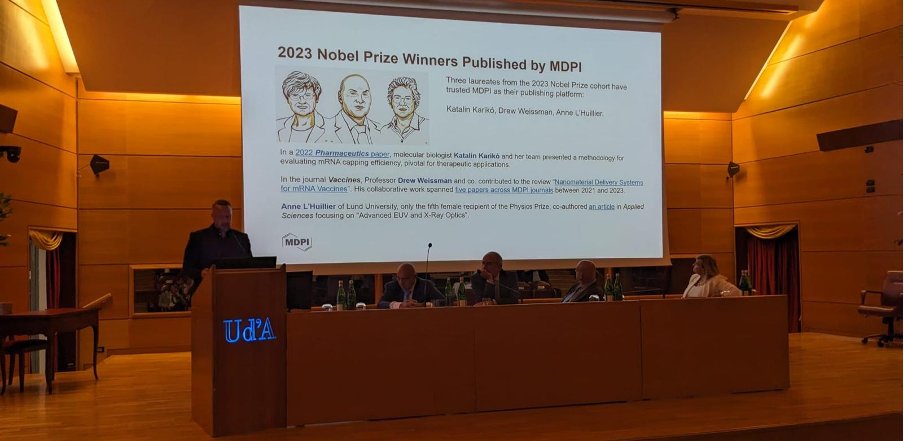
Presenting at the 1st International Conference of Environmental Medicine
In September, MDPI and our journals IJERPH and Diseases sponsored and participated in the 1st International Conference of Environmental Medicine: Environmental Threats to Human Health: From Genetics to Epigenetics, held in Chieti, Italy.
The conference was organized in collaboration with various societies, including the Italian Society of Environmental Medicine (SIMA), one of more than 160 societies partnering MDPI journals.
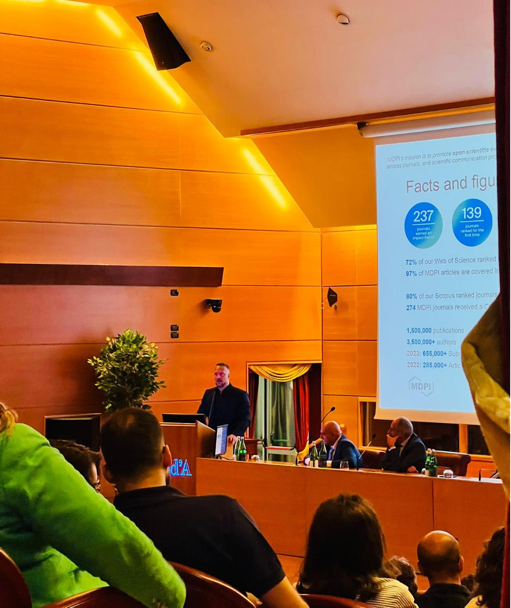
The conference brought together influential figures from the Italian scholarly community, such as Antonio Felice Uricchio (President of the National Agency for University Research Assessment [ANVUR]), Alessandro Miani (President of SIMA), and Liborio Stuppia (Director of ‘Gabriele d’Annunzio’ University of Chieti-Pescara), among others.
MDPI was the sole publishing sponsor of the conference, at which I had the opportunity to present on behalf of the company. I provided an overview of MDPI, covering key facts and figures, the peer-review process, our strong collaboration with the Italian market, and insights into Nobel Prize winners who have published with MDPI, ahead of Sir Richard Roberts’ Nobel lecture.
“As at September 2024, 44 Nobel laureates have contributed to over 115 articles across 35 MDPI journals”

The keynote speaker at the event was Sir Richard Roberts, Nobel Laureate and 1993 Nobel Prize winner in Medicine, recognized for his discovery of split genes.
Nobel Laureates’ Contributions to MDPI
As at September 2024, 44 Nobel laureates have contributed to over 115 articles across 35 MDPI journals. I’ll share more details on this in the October newsletter.
Hosting such prominent figures in their respective fields, who play a significant role in advancing the OA movement, of which we are leaders in, resonates deeply with our editorial teams.
Sponsoring and supporting academic conferences is something we do on a large scale, and it continues to grow. Attending and speaking about MDPI shows our commitment by taking the time to connect with the scholarly community in person.
MDPI’s Presence in Italy
Italy ranks third globally in total MDPI publications, with nearly 130,000 contributions. We collaborate with about 12,000 Editorial Board Members in Italy, over 6,100 of whom have an H-index of more than 25.
We have 83 Editors-in-Chief and 209 Section Editors-in-Chief from Italy. We also support 20 Italian universities through our Institutional Open Access Program (IOAP) agreements with major institutions such as Sapienza University of Rome, the University of Milan, and the University of Pisa, among others.
Inside MDPI

Celebrating Peer Review Week, 23–27 September 2024
As we conclude another productive month at MDPI, I am pleased to highlight our participation in this year’s Peer Review Week (PRW), which took place from 23–27 September 2024. This global, community-driven celebration underscores the vital importance of peer review in maintaining the integrity and reliability of academic work. PRW provide a platform for institutions, publishers, and scholars to come together and reflect on the processes that uphold the quality of scholarly communication.
“We remain committed to enhancing the peer review process”
The theme for PRW 2024 was ‘Innovation and Technology in Peer Review.’ At MDPI, we were proud to contribute through various online and in-person events, including webinars from Europe, Asia-Pacific, and a roundtable discussion on innovation and technology in peer review. These events offer an opportunity to explore new tools and technologies that are shaping the future of peer review, particularly the integration of AI. As a company, we remain committed to enhancing the peer review process with innovative solutions while preserving the essential human expertise that makes it effective.
Peer Review Innovation and Technology at MDPI
Our efforts to improve peer review extend beyond the activities of this week. We also released a blog article discussing New Tools for Advancing Research Integrity and Peer Review, where we highlight two tools that MDPI has developed to support research integrity: Eureka – Reviewer Recommender and Online Proofreader. We are continually refining SuSy, our in-house submission system, to provide a seamless experience for authors and reviewers alike.
Listening to MDPI’s Authors and Reviewers
We highly value the time of our reviewers, and so do the authors who contribute to our journals. Our editorial process is bolstered by a network of dedicated reviewers, a team of over 6,000 diligent, well-trained staff members, and an in-house article submission platform designed to ensure efficient processes.
We make it a point to continually improve the experiences of both our authors and our reviewers throughout the entire editorial process, from submission to publication. This is why we regularly ask for feedback by conducting surveys. Here is what some of our respondents recently had to say about working with MDPI:
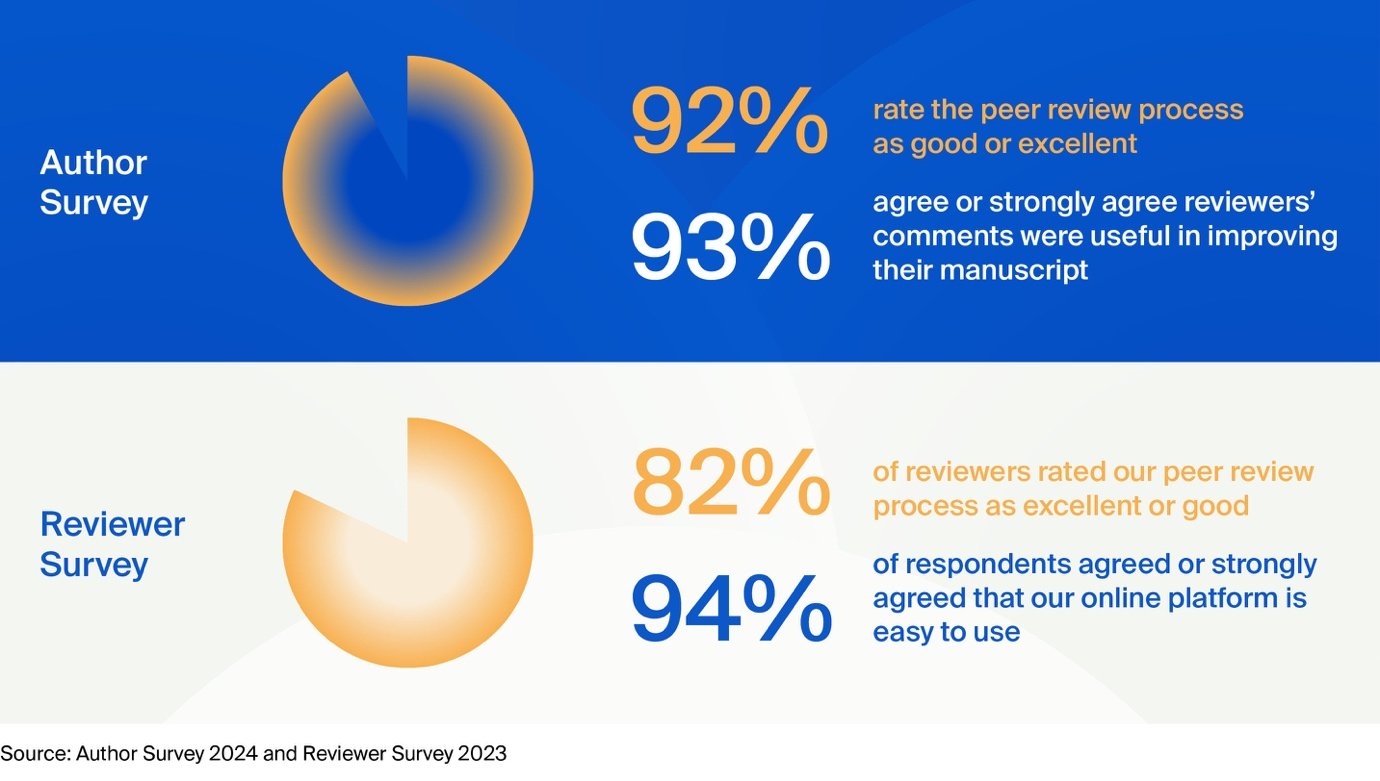
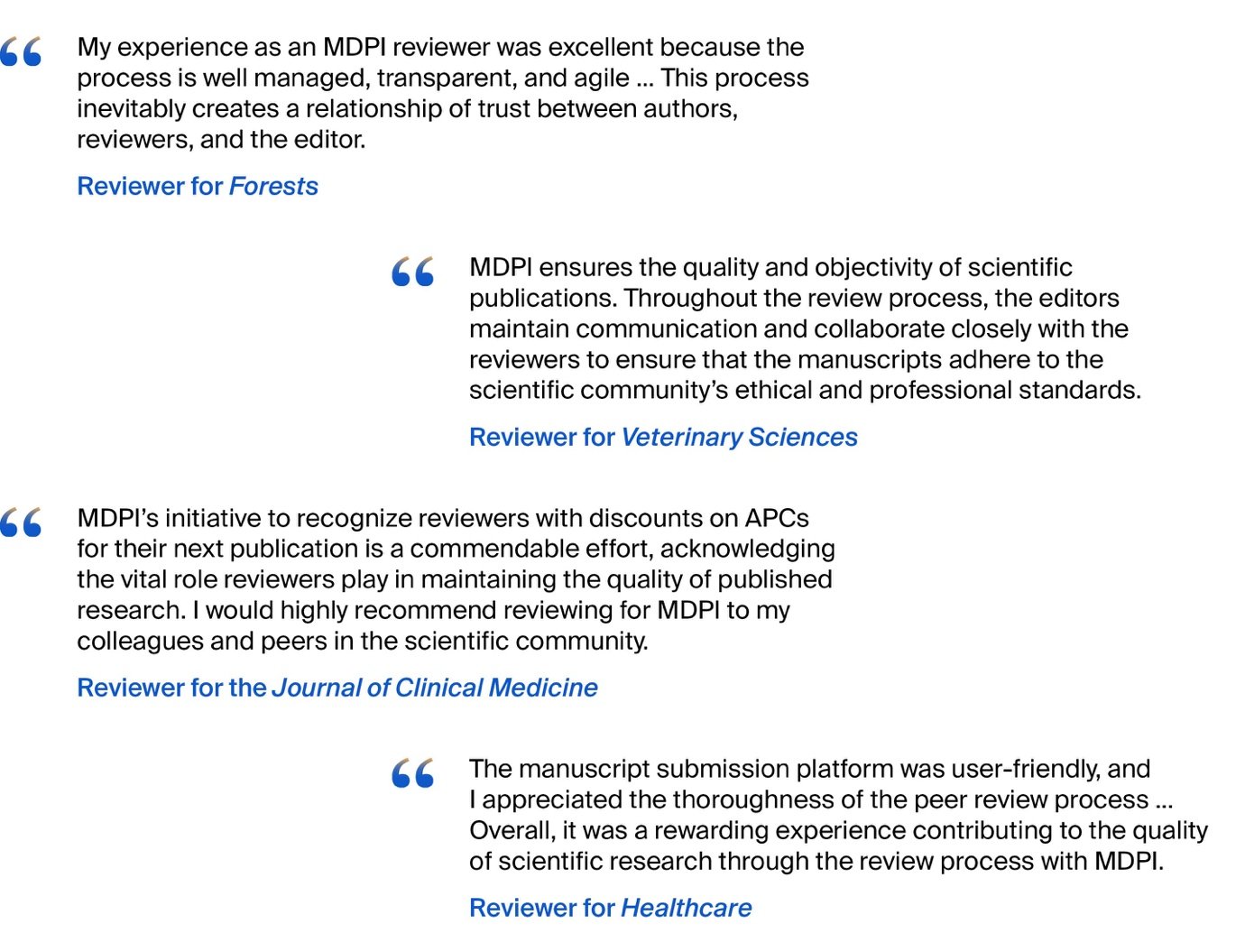
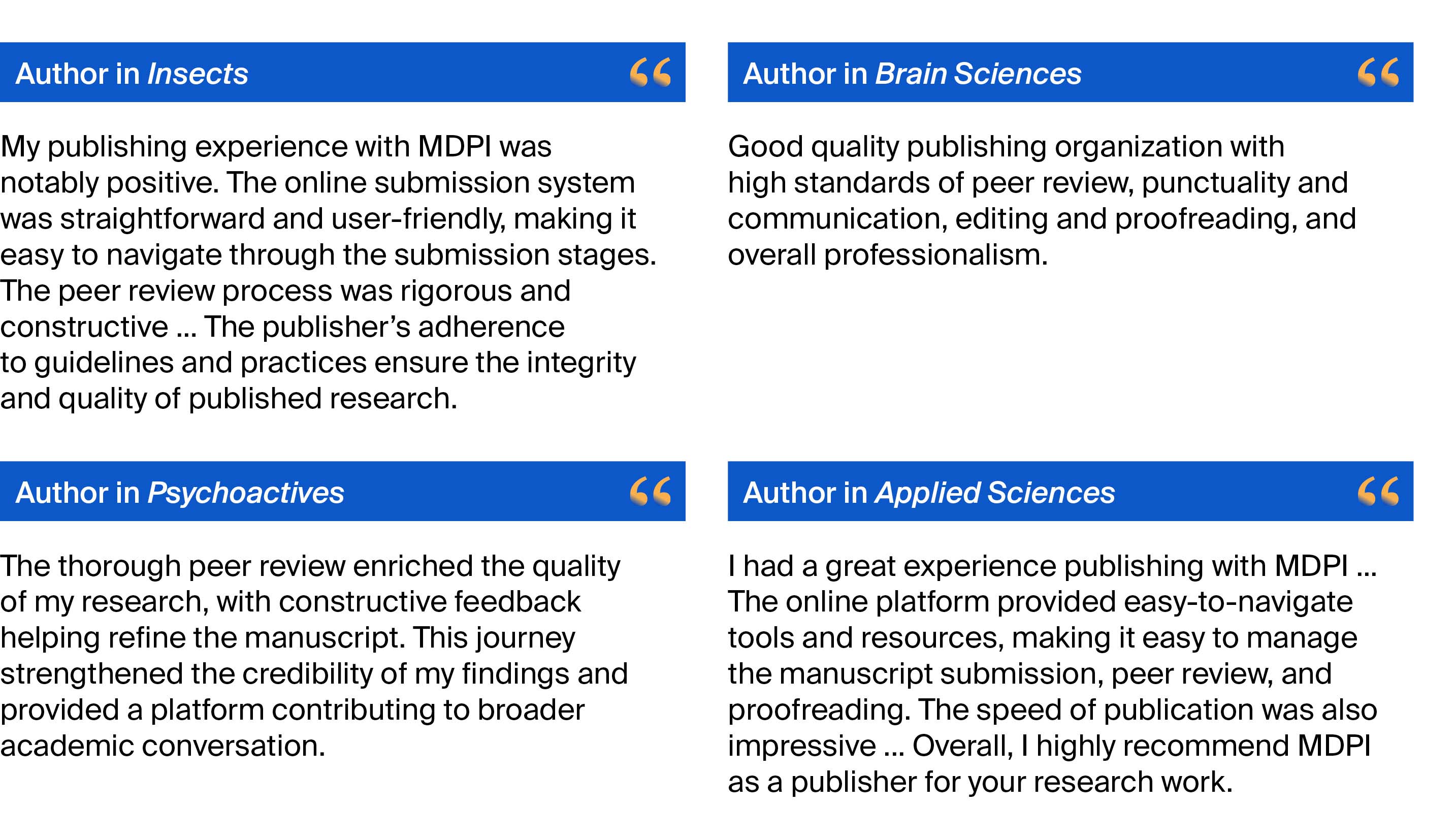
Coming Together for Science

ICM 2024 – Advances in Material Innovation
I am pleased to share that we held The 5th International Conference on Materials: Advances in Material Innovation (ICM 2024) in Basel, Switzerland this past 25–27 September.
This intimate event brought together leading scientists, researchers, and industry experts to exchange insights on recent advancements in materials characterization, processing, and manufacturing. Key focus areas included nanotechnology in material sciences and engineering, optical, electrical, and magnetic materials, soft, biological, and biomaterials, fibres, membranes, thin films, sensing materials, as well as materials and devices for energy and solar fuels. In addition, discussions featured the integration of AI and machine learning in materials research.
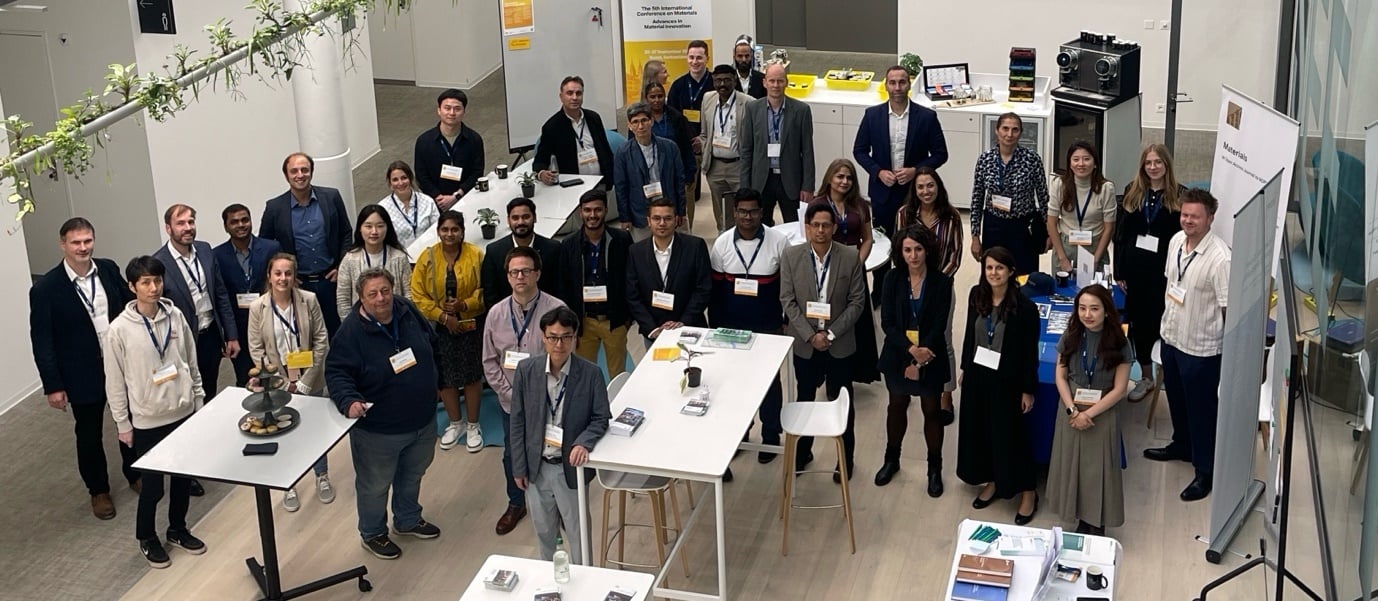
We received 90 abstract submissions. Over the course of the three-day event, 18 posters were displayed, and 34 talks were delivered, including three plenary speeches, seven invited talks, and 24 selected oral presentations.
A special thank-you to our partnering societies The Polish Membrane Society and The North American Thermal Analysis Society, as well as our sponsor, Nanomegas, for their support of the ICM conference. I am also pleased to share that we presented three awards, including the Best Presentation Award and two Best Poster Awards, recognizing the outstanding contributions of our participants.
Upcoming In-Person Event
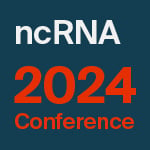
7–9 October 2024
Non-coding RNA World 2024: Exploring Mechanisms, Designing Medicines
Location: Basel, Switzerland
ncRNA 2024 will explore the latest advances in the field, covering topics from basic biology to medical and technological applications.
Find more upcoming MDPI events here.
Closing Thoughts
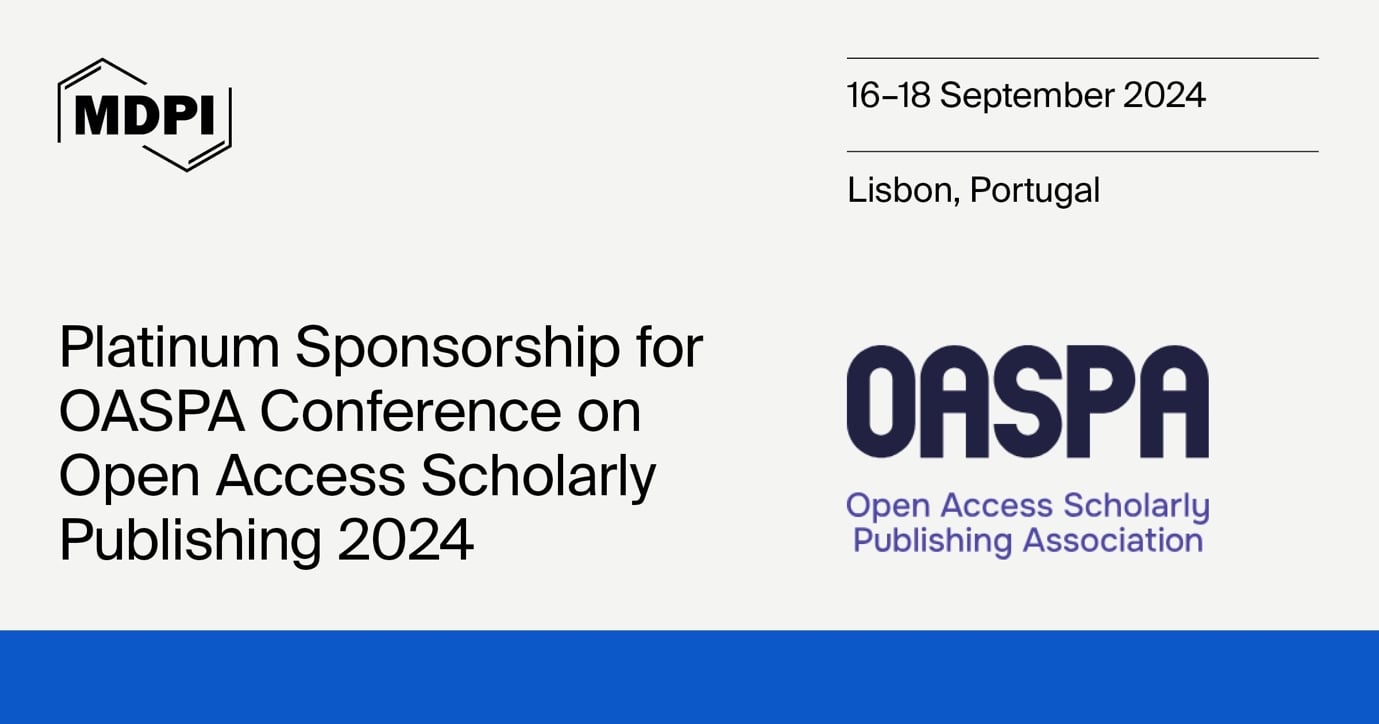
Reflections from OASPA 2024 Conference in Lisbon (16–18 September)
Amidst my September travels, I also had pleasure of attending the OASPA 2024 Conference in Lisbon from 16–18 September. It’s the first in-person Open Access Scholarly Publishing Association (OASPA) event in five years, and being in the sunny city of Lisbon made it even better! MDPI has long been a member of OASPA, and attending this conference gave us an opportunity to connect with other key members of the organization to see the latest developments in the OA movement.
“I believe that publishers have a lot to offer in terms of data and insights”
Main Themes from OASPA 2024
The main themes covered were equity and inclusivity, diamond OA, AI and openness, OA books, research integrity, and how OA can address broader societal challenges such as climate change. While it was great to see the latest developments in these areas, it was also clear that certain voices were missing, particularly those of major publishers. Although it’s not easy to incorporate every perspective, I believe that publishers, including MDPI, have a lot to offer in terms of data and insights. During the membership meeting, a few of us raised the point that large-scale publisher input could add value to these discussions.
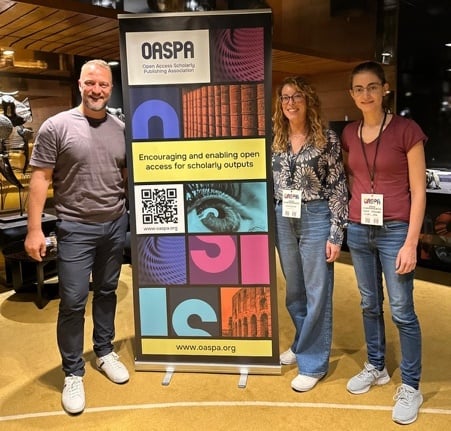
It’s important to participate in industry conferences such as OASPA in order to be part of the discussions and remain at the forefront of the OA movement.
It’s an opportunity to build meaningful relationships with organizations that share our commitment to OA.
While sponsorship is one way to show our support, it’s clear that being part of the conversation through participating in the OASPA groups and committee is what really makes a difference.
It took the last 20 years for more than 50% of the world's research to be published via open access. This provides a sobering reminder that flipping the remaining 50% will be a big challenge.
An important takeaway for me was that there is no "one-size-fits-all" solution for OA challenges: different regions and different stakeholders need different forms of support, whether it is infrastructure, funding, education, or policy, for example. I also enjoyed Rebecca Ross' presentation on how OA can drive action on climate. A few panellists shared the need for transparency in the peer-review process, advocating for open review reports, which is something we have been offering since 2014.
Speaking of openness, we are excited to celebrate Open Access Week 2024 with the scholarly community from 21–27 October. I look forward to sharing a recap of our activities in the next newsletter.
Chief Executive Officer
MDPI AG
29 September 2024
MDPI New Journal Proposal—Invitation to Shape the Future of Open Science Together

As a leader in open access publishing, MDPI is eager to explore new collaboration opportunities, including the launch of new journals and the transfer of existing ones. At present, MDPI publishes over 400 journals, more than 160 of which have established partnerships with academic organizations. Additionally, we publish 19 association journals.
In order to enhance exchange and cooperation with scientific researchers and share the results of open science, MDPI invites experts and scholars from various fields to submit proposals for new journal collaboration opportunities. If your proposal is approved, you could take on the role of Editor-in-Chief, Deputy Editor-in-Chief, or Editorial Board Member of the journal. This position allows you to manage the manuscript review process alongside our editorial department, participate in calls for papers, strengthen your network with scholars in the field, expand scientific research cooperation, enhance your personal and academic influence internationally, and play a leading role in academia.
Once the new journal is online, MDPI will provide a variety of promotional channels to market the journal internationally.
MDPI will offer various promotional channels to enhance its visibility and promote it internationally.
How can you determine the theme of a new journal?
- Assess research hotspots/academic frontiers;
- Assess pioneers in the field/key research directions of universities;
- Determine whether MDPI has already established a journal in the field.
You can browse MDPI’s existing journals at the following link: https://www.mdpi.com/about/journals.
Advantages of collaborating with MDPI:
- MDPI is a global leader in open-access publishing with extensive academic resources.
- MDPI offers a professional publishing team that provides comprehensive support throughout the publishing process.
- MDPI’s diverse promotional platforms and channels help journals quickly increase their international visibility and influence.
We invite you to submit new journal proposal here, and contribute to academic development! In addition, if your institution (university, institute, college, national key laboratory, society, etc.) intends to establish a journal, you can also submit a draft to MDPI on its behalf.
27 September 2024
MDPI’s 2023 Travel Awards—Winners Announced

MDPI journals frequently grant travel awards to empower junior researchers to showcase their latest research at academic conferences, thereby amplifying their impact within their research fields.
We extend our heartfelt congratulations to the 103 recipients of MDPI's 2023 Travel Awards from different countries and territories for their exceptional presentations. These outstanding individuals were selected by the journal editors based on the strength of their research proposals and the anticipated impact of their presentations at academic conferences. We commend their exceptional contributions and wish them continued success in their academic endeavors.
MDPI will continue to provide support and recognition to the academic community. To learn more about the list of awardees, please visit the following pages:
- Biology and Life Sciences;
- Chemistry and Materials Sciences;
- Engineering;
- Environmental and Earth Sciences;
- Medicine and Pharmacology;
- Public Health and Healthcare;
- Others.
About MDPI Awards:
To reward the academic community, especially young researchers, and enhance communication among scientists, MDPI journals regularly offer various awards to researchers in specific fields. These awards, serving as a source of inspiration and recognition, help raise the influence of talented individuals who have been credited with outstanding achievements and are making a significant contribution to the advancement of their fields.
To explore more MDPI awards, please click here.


